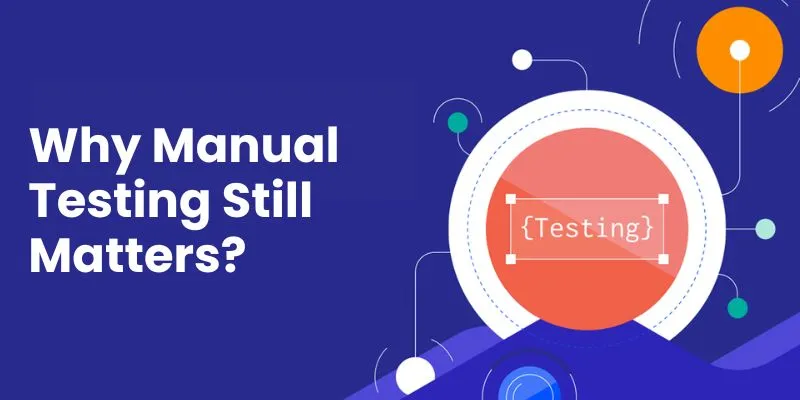In today’s fast-paced world of software development, automation is king. With the rise of agile methodologies process and continuous integration/continuous deployment (CI/CD) pipelines, automated testing has become a cornerstone of ensuring software quality and reliability. However, amidst this automation frenzy, the importance of manual testing should not be overlooked. Manual testing, despite its perceived limitations, still plays a essential role in the software development lifecycle. In this blog post, we’ll delve into why manual testing matters to be relevant in modern software development environments. If you plan to become a software tester, you should learn more about tricks and strategies by taking courses such as the Software Testing Course in Chennai at FITA Academy.
Why Manual Testing Still Matters?
The Human Touch in Testing
One of the key main advntages of manual testing is the hand testing it brings to the process. Unlike automated tests, which follow pre-defined scripts and algorithms, manual testers can apply their intuition, creativity, and domain knowledge to uncover potential issues that automated tests might miss. Human testers can simulate real-world usage scenarios, exploring edge cases and unexpected user interactions that automated tests may not cover adequately.
Exploratory Testing
Manual testing excels in exploratory testing, a dynamic approach where testers explore the software without predefined test cases. This form of testing is particularly effective in uncovering usability issues, inconsistencies in user interfaces, and other subtle defects that automated tests may overlook. Exploratory testing allows testers to adapt their approach in real-time based on their observations, making it highly flexible and responsive to changing project requirements.
User-Centric Perspective
Manual testing enables testers to adopt a user-centric perspective, putting themselves in the shoes of end-users to evaluate the software from their perspective. This user empathy is invaluable in identifying usability issues, understanding user workflows, and ensuring that the software meets the customers needs and expectations of its intended audience. While automated tests can verify functional correctness, manual testing focuses on the overall user experience, helping to deliver software that delights users. Passionate to know more about software testing strategies? Then check out the Software Testing Online Course. Enroll now.
Ad Hoc Testing
In agile development environments where requirements evolve rapidly, manual testing offers the flexibility to perform ad hoc testing as needed. Testers can quickly respond to changing priorities, new feature requests, or bug fixes by conducting on-the-fly testing without the need to script or automate test cases in advance. This agility ensures that testing keeps pace with development, facilitating faster feedback loops and accelerating time-to-market.
Accessibility and Localization Testing
Manual testing is indispensable for validating accessibility and localization aspects of software applications. Testers can assess the software’s compliance with accessibility standards, such as WCAG (Web Content Accessibility Guidelines), and verify its usability for users with diverse needs, including those with disabilities. Similarly, manual testing is essential for ensuring that software is properly localized and culturally adapted for different regions and languages, considering nuances that automated tests may overlook.
While automated testing has revolutionized the way software is tested, manual testing remains a vital component of the quality assurance process. Its human-centric approach, flexibility, and ability to uncover nuanced issues make it indispensable in ensuring software quality and user satisfaction. By leveraging the strengths of both manual and automated testing, organizations can achieve a comprehensive testing strategy that delivers high-quality software products while meeting the demands of modern software development practices. Looking to boost your Software knowledge? Join our unique and engaging Software Training Institute In Chennai. Gain valuable insights and skills conveniently and flexibly. Enroll now to take your profession to the next level!

